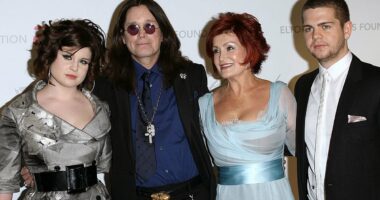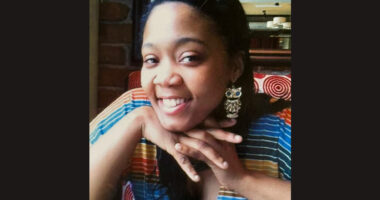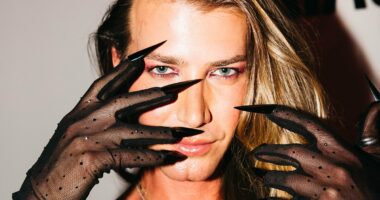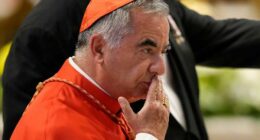Share this @internewscast.com
Gabby Allen has confidently responded to critics who comment on her athletic build following her triumph on Channel 4’s Celebrity SAS: Who Dares Wins.
The 33-year-old, who gained recognition from her stint on Love Island in 2017, is not only a reality TV star but also a dedicated fitness instructor, championing women’s empowerment.
Speaking exclusively to the Daily Mail, Gabby emphasized that strength and allure can coexist, as she proudly defended her well-toned physique.
The Celebrity Big Brother alum shared her perspective, stating, “The worlds of fitness and fashion are ever-evolving. There will always be differing opinions.”
She continued, “When I post transformation photos online, some might say they prefer the ‘before,’ and I’m perfectly fine with that.”
Gabby explained her fitness journey began with the desire to boost her own self-esteem. “I know when I feel my best,” she said, “and for me, that’s when I feel both defined and powerful.”

Gabby Allen has defiantly hit back at trolls who judge her muscular physique, after winning Channel 4’s Celebrity SAS: Who Dares Wins

The reality star, 33, who rose to fame on Love Island in 2017, is a fitness instructor and an advocate for women empowerment
‘So as much as some people aren’t going to like it, it’s something that when I feel good about myself, I don’t care.
‘And for me, the whole reason I done the show and what I try and put on my socials too is to show we can be strong and be sexy at the same time.’
After winning Love Island All Stars in 2025, Gabby put her mind and body through the ultimate test of resilience on Celebrity SAS.
Lifting the same weights as her male recruits, surviving a war zone and trekking through the desert – Gabby proved you can be both strong and sexy.
Gabby, Love Island star Dani Dyer and former Olympic swimmer Emily Seebohm made history as the first ever all-female line-up of finalists to pass the show.
Whittled down to five, the episode began with the women joined by fellow recruits Ben Cohen and Mack Horton for the hardest part of the selection course, a condensed version of SAS training.
During the challenge, Ben, 47, and Mack, 29, both tapped out – leaving the three women standing in front of the DS in the final moment of the series.
Revealing the harsh realities of the show, Gabby added: ‘In between tasks, you’re not giving a cup of tea or anything like that. It’s very much you are treated as special forces.

In an exclusive interview with Daily Mail, Gabby declared ‘ you can be strong and sexy at the same time’ as she defended her gym-honed body

After winning Love Island All Stars in 2025, Gabby put her mind and body through the ultimate test of resilience on Celebrity SAS

Lifting the same weights as her male recruits, surviving a war zone and trekking through the desert – Gabby proved you can be both strong and sexy

Gabby, Love Island star Dani Dyer and former Olympic swimmer Emily Seebohm made history as the first ever all-female line-up of finalists to pass the show
‘I knew what I was letting myself in for and I just wanted to take everything in my stride. Obviously, there was moments I kind of hit back but that’s just natural. I knew what I was doing and I wanted to take everything on the chin.’
She added: ‘Even though it’s a TV show, for me, I was very much just trying to be in the special forces, you know, I was just trying to do the best that I could.
‘I didn’t even have a hairbrush with me, I had to borrow Emily’s. I cut my hair off because when I came out of the show, my hair was f*****.
‘When you when you go in there you just have to leave all your inhibitions at the door and just crack on. It’s very, very organic.’
During her time on the show, Gabby received a brutal final interrogation that saw her instructor brand her a ‘useless f****** talentless t***’, before dousing her in water.’
Looking back on the moment, which some fans branded ‘harsh and too much’, Gabby said: ‘It’s interesting because obviously I’ve watched the show before, so I knew that was coming.
‘And I’ve had quite a few messages being like, that was ridiculous. It was too far, all this stuff.
‘But the whole point of the show is for you to have a true experience of what special forces go through. They will do anything that they can to break you.’











